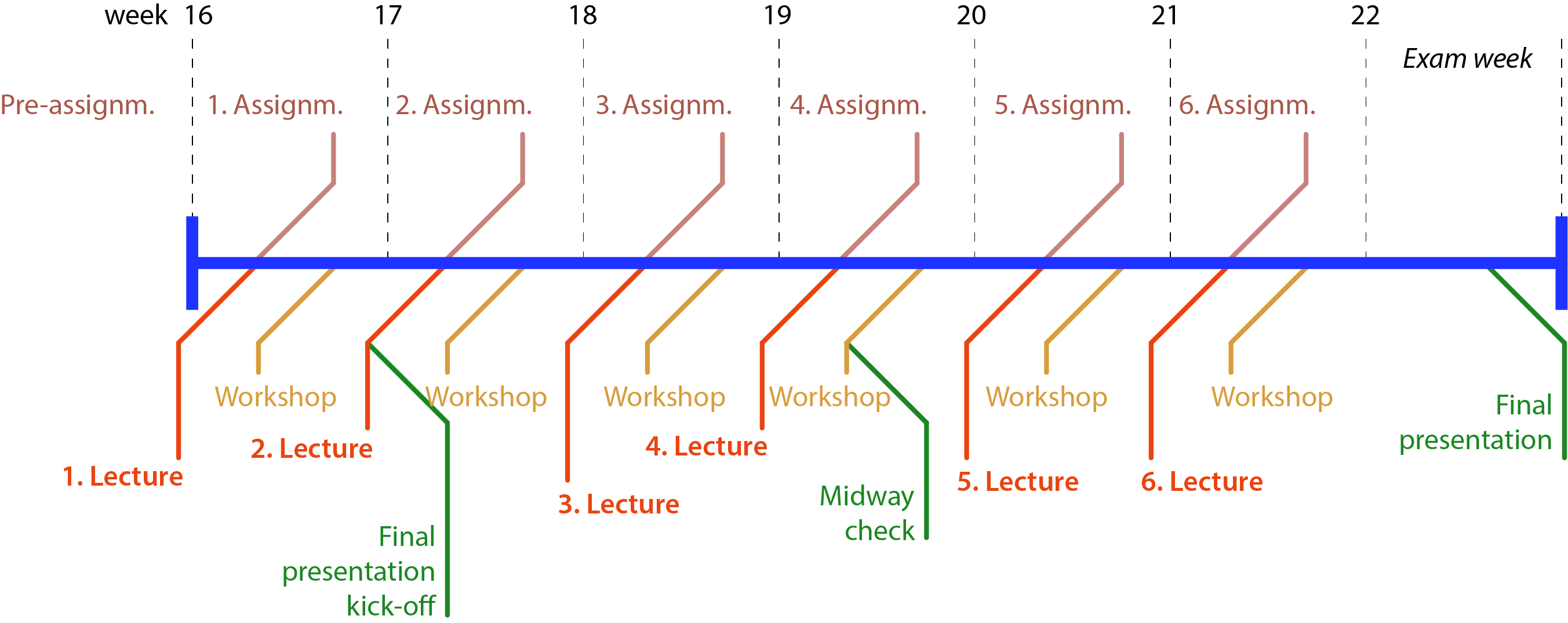WAT-E2090 - Water and People in a Changing World D, Lecture, 19.4.2022-25.5.2022
This course space end date is set to 25.05.2022 Search Courses: WAT-E2090
Topic outline
-
From this section you can find the overall schedule for the course and other practical information.
Please note: each lecture on Tuesdays (12:30-16:15) is divided into two parts: lecture itself and hands-on training. These Tuesday sessions are compulsory and you need to attend to minimum five out of six of them, in order to pass the course. Workshops on Thursdays are optional.
Lectures and other sessions will be given in in class room. Lectures and training sessions will be recorded for those who cannot attend due to sickness. It is not possible to do the course fully remotely, as full hybrid teaching is not possible.
Course schedule:
Week Lecture date
Tue at
12:30-14:00 @ U401;
14:15-16:15 @ U351Theme Workshop date
Thu at 9:30-11:30
@ U351 / zoomHome assignment
due
Mondays by 23:5516 Tue 19.4. 1. Global water resources;
+ Introduction to the courseThu 21.4. Mon 25.4. 17 Tue 26.4. 2. Population dynamics
+ project work kick-offThu 28.4. Mon 2.5. 18 Tue 3.5. 3. Land cover change and food production Thu 5.5. Mon 9.5. 19 Tue 10.5. 4. Water use Thu 12.5.
Mon 16.5. 20 Tue 17.5. 5. Water scarcity Thu 19.5. Mon 23.5. 21 Tue 24.5. 6. Socio-economics of water and food Wed 25.5. (due to public holiday) Wed 1.6. 22 Tue 31.5. Final presentation -
you can decide within the small groups
when is the best time
for presentations.
Presentation session takes 2-3 hrs.- -
** note the change in date; time remains same
Course plan
You can download the course plan from here.
Introductory ppt
Introduction ppt (includes all the practicalities, grading criteria in more details, etc)
Grading
The grading is based on following division: active participation in Tuesday lecture-exercise sessions (12.5%), home assignments (62.5%), final presentation (25%). Please see the Introduction ppt above for more detail description of the grading, criteria, point limits for each grade, etc.
R for own computer
We will be using R over RStudio for spatial analyses. You can install these to your own computer; please make sure that you have R version of 4.0 or higher. Below are useful links:
- R: https://www.r-project.org
- RStudio: https://www.rstudio.com/products/rstudio/download/
- Guide to installe these on Windows or Mac: https://www.datacamp.com/community/tutorials/installing-R-windows-mac-ubuntu
Adobe Illustrator for your own computer:
we practice and use Adobe Illustrator for making the graphs and maps from R even nicer. You can access to it via VDI-connection; see instructions in Adobe Illustrator use via VDI -tab.
